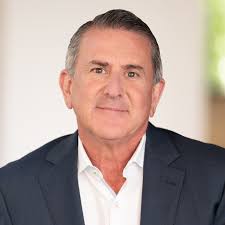Target CEO Brian Cornell to step down — what this means for the company and consumers

Target’s CEO shake-up: Brian Cornell steps aside, Michael Fiddelke takes charge as the retailer faces critical crossroads
Target announced Wednesday that its long-serving chief executive, Brian Cornell, will leave his role early next year after guiding the retailer for more than a decade. Cornell, who has been the face of the $107 billion company since 2014, will transition to executive chair of the board, handing the reins to current Chief Operating Officer Michael Fiddelke on February 1.
Cornell’s departure comes at a turbulent time for the big-box giant. Once seen as a consistent outperformer in U.S. retail, Target has been wrestling with sluggish sales, consumer backlash over its Pride merchandise, and criticism of its diversity and inclusion policies. The headwinds have weighed heavily on growth: the company’s most recent quarterly report showed sales slipping year-over-year and a 21% drop in net income, even as revenue edged up slightly from the prior quarter.
Despite these challenges, Cornell sounded optimistic about Target’s trajectory. He pointed to “encouraging signs of recovery”, such as stronger store traffic and improving sales trends, while emphasizing that the company is sharpening its execution ahead of the all-important back-to-school and holiday seasons.
The leadership shift, approved unanimously by the board, signals confidence in Fiddelke’s ability to steady the ship. “Michael has a deep knowledge of our business and a clear focus on restoring growth,” Cornell said in a statement, framing his successor as the right leader for Target’s next chapter.
But Wall Street reacted coolly to the announcement. Shares of Target dropped nearly 8% in early trading, as investors weighed both the CEO transition and the retailer’s ongoing struggles to hold market share in a post-pandemic retail landscape.
Target, which operates close to 2,000 stores across the U.S., is also facing pressure from potential tariff-driven price increases. On an earnings call, Chief Commercial Officer Rick Gomez said the company is working with suppliers to limit the impact on consumers, insisting price hikes remain a “last resort.”
The shake-up marks the end of an era for Target and the beginning of a critical test: whether new leadership can rebuild momentum, regain consumer trust, and navigate a fiercely competitive retail environment.
What This Leadership Change Means for Target
Cornell’s departure signals a pivotal moment for Target. While his leadership stabilized the brand and expanded its reach in the e-commerce era, his exit leaves the company at a crossroads.
The appointment of Michael Fiddelke suggests that Target is opting for continuity rather than a disruptive shake-up. Fiddelke, a long-time insider, is deeply familiar with the company’s operations and is expected to focus on execution rather than reinvention. His leadership will be tested in three key areas:
-
Restoring Consumer Confidence: Target must find ways to win back shoppers who have been turned off by culture-war controversies while also appealing to younger, diverse audiences. Balancing inclusivity with market realities will be a delicate act.
-
Competing in a Tight Market: Rivals like Walmart, Amazon, and Costco continue to capture market share. Target’s ability to differentiate itself through value, design-forward products, and customer loyalty will determine its resilience.
-
Navigating Economic Pressures: Inflation, potential tariffs, and shifting consumer spending patterns mean Target will need sharper cost controls and supply chain agility to stay competitive.
In short, Fiddelke inherits a brand with strong foundations but facing turbulent waters. If he can steady sales, rebuild consumer trust, and chart a strategy for long-term growth, his transition could prove seamless. But if the challenges deepen, Target risks slipping further behind its rivals.

